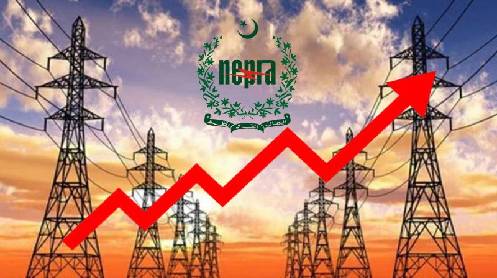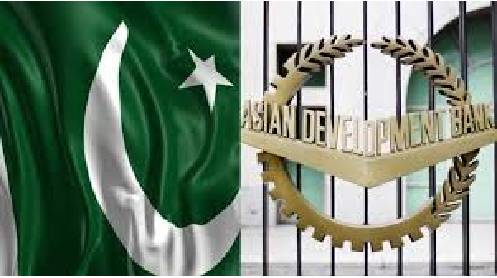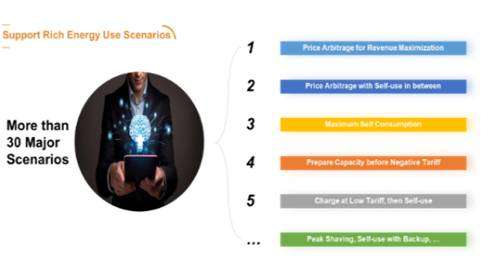ISLAMABAD: The ex-Wapda distribution companies (XWDiscos) have sought the National Electric Power Regulatory Authority’s (Nepra) green light for collection of Rs1.829/unit additional charges from consumers in October.
The request is in relation to the monthly Fuel Charges Adjustment (FCA) for August. Meanwhile, Rashid Mahmood Langrial, Power Division Secretary, shared updates on the ongoing power sector’s anti-theft campaign that started on September 7.
He said on the 12th day, the recovery reached Rs4.6 billion, with 1,104 individuals apprehended. Although, the disparity between the filed FIRs and actual arrests is growing, there are plans to close this gap, he added.
He further said Hesco was showing signs of improvement, while Sepco and Pesco had been asked to do the same.
Notably, criminal elements in the distribution companies have begun to feel the heat, indicating progress in the crackdown on corrupt practices.
The power sector experts, however, term this exercise futile, as it is progressing too slowly, having reclaimed just Rs4 billion so far.
High-ranking officials and the Discos management have largely evaded action, while only lower-level employees have been targeted.
The recovery rate lags behind the substantial dues and theft volume. Despite total dues of Rs589 billion, only Rs4 billion has been recovered in the first 12 days.
“The campaign’s slow pace is attributed to the government’s reluctance to target major defaulters and top officials.” Meanwhile, the Central Power Purchasing Agency (CPPA), acting on behalf of XWDiscos, has filed a petition seeking the aforementioned tariff hike for the August 2023 FCA.
The Nepra has set a public hearing for September 23 to review this petition. If the proposed increase is sanctioned, it could result in a total financial impact of over Rs25 billion on the consumers.
The petition outlines that in August, the consumers were charged a reference fuel cost of Rs6.6457 per unit, while the actual fuel cost incurred was Rs8.4747 per unit. The CPPA argues that the additional cost of Rs1.829 per unit should be transferred to the consumers.
According to the data furnished with the regulatory authority, the CPPA’s report indicates that a total of 15,959 gigawatt-hours (GWh) of electricity was generated in August 2023, with an associated cost of Rs131.91 billion (equivalent to Rs8.2654 per unit). Moreover, 15,472GWh, priced at Rs131.118 billion (or Rs8.4746 per unit), was delivered to distribution companies (Discos), while transmission losses stood at 2.87 percent.
It’s noteworthy that there was a 13.57 percent increase in power generation in August 2023 compared to the same month of the previous year’s generation of 14,052.6 GWh. In comparison to July, generation rose by 7.5 percent.
The cost of generation in August decreased by 15.75 percent, averaging at Rs8.4746 per unit, compared to August 2022’s cost of Rs10.0587 per unit; however, it marked a 1.63 percent increase from the previous month’s cost of Rs8.3387 per unit.
The year-on-year decrease in generation cost primarily stemmed from the decrease in coal, furnace, and RLNG prices. The generation cost from coal fell by over 50 percent, furnace 6.4 percent, and RLNG-based generation cost reduced by 4.13 percent. Additionally, the increase in low-cost renewable energy generation played a significant role. Hydropower generation increased by 12.2 percent, nuclear by 8.86 percent, solar by 14.4 percent, and 106 percent as compared to the generation from these sources in August 2022.
Hydropower accounted for the largest share of 37.6 percent in total power generation in August 2023, reaching 6,006 GWh. This represented an increase of 8.8 percent over the previous month’s generation of 5,518 GWh.
RLNG-based electricity generated 2,741GWh, costing Rs23.715 per unit, compared to 2,918GWh in July at Rs24.43 per unit. In August 2022, RLNG generation totaled 1,755.8 GWh, costing Rs24.72 per unit.
The nuclear power plants generated 2,040GWh electricity in August 2023, with per unit cost of Rs1.1725. In July 2023, generation stood at 2,107GWh with Rs1.664/unit and in August 2022, it was 1,873.98 GWh costing Rs1.019/unit.
Over the previous month nuclear power generation declined by 3.18 percent, while it increased by 8.86 percent over August 2022.
Coal-based generation (local and imported) witnessed a growth of 8.77 percent, reaching 2,357GWh in August 2023, up from 2,163GWh in August 2022. Over the previous month’s (July) generation of 2,180GWh, this month’s generation declined by 8.12 percent.
In August 2023, generation from the local coal was 1,638GWh (costing Rs7.01/unit) and imported coal generation stood at 719 GWh (cost Rs20.14/unit).
The cost of coal-based electricity (from both imported and local coal) in August 2023 was 13.57 per unit, compared to Rs11.54 per unit in July 2023 and Rs20.54 per unit in August 2022.
Natural gas-based generation contributed 1,214GWh of electricity to the national grid in August, with a cost of Rs13.22 per unit.
In July 2023, generation was 1,129 GWh (at a cost of Rs13.68 per unit), while August 2022 saw 1,315GWh generated at a cost of Rs10.49 per unit.
During August, no electricity was generated from the high-speed diesel. However, 649 GWh of electricity generated from furnace oil came at a rate of Rs33.32 per unit. In the previous month of July, 295GWh electricity was generated at Rs28.73/unit. In August 2022, the generation stood at 1021.4GWh (costing Rs35.6/unit).
The import of electricity from Iran amounted to 26GWh in August 2023, with a cost of Rs25.1 per unit against the previous month’s 29GWh at Rs23.616/unit and 54.47 GWh in August 2022 at Rs20.96/unit.
Additionally, 38GWh electricity was generated from bagasse at a rate of Rs5.982 per unit. Wind and solar sources contributed 805 GWh and 84 GWh respectively, to the national grid during the month.







